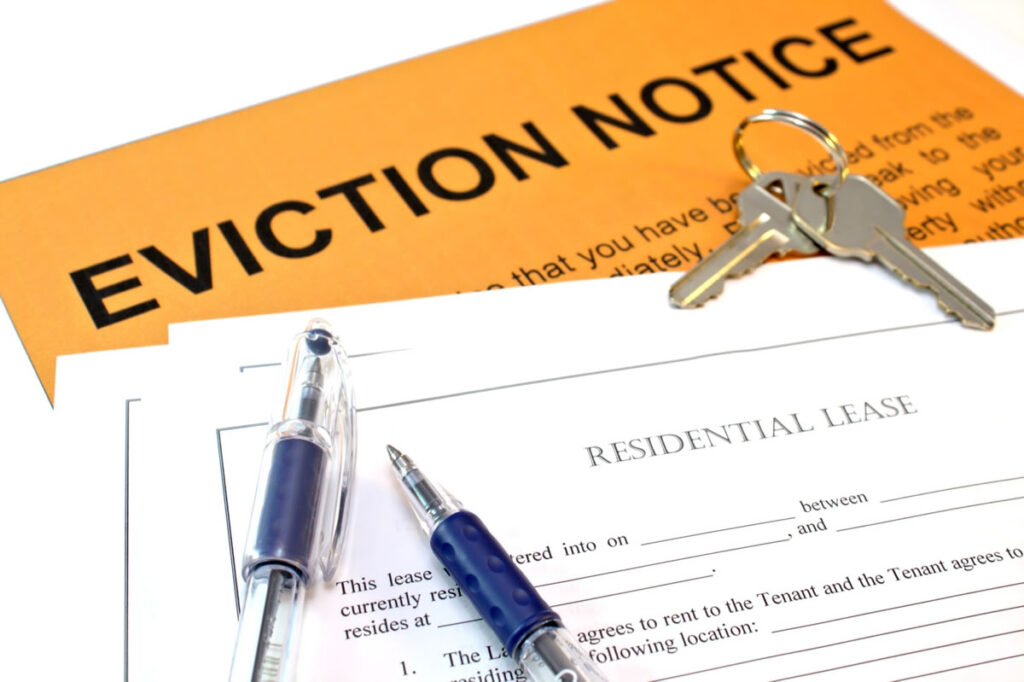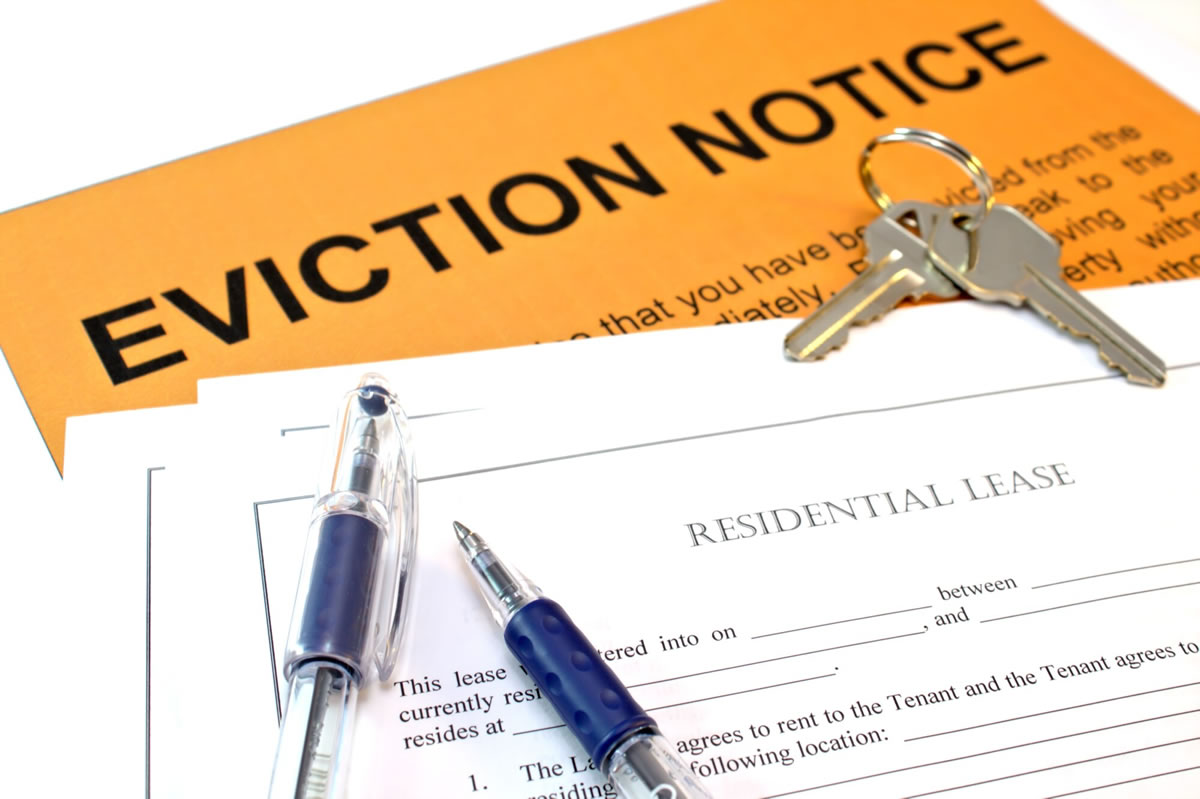Evicting a child from your home in Florida is undoubtedly a challenge. This is an emotionally charged experience.
This guide is here to help you navigate this difficult path with clarity and confidence.
Delve into the specific laws governing child eviction in Florida. Understand the legal process step-by-step. Gain the tools and knowledge necessary to make informed decisions. Anticipating potential challenges will help you move forward with the process. This approach prioritizes everyone’s well-being.

How to Evict a Child from Your Home in Florida
An Unlawful Detainer action offers legal recourse in Florida. Before evicting a child living rent-free, prioritize communication and seek professional guidance. Doing so is important because it significantly impacts both your rights and family dynamics.
Understanding the Legal Landscape
Before you start the eviction process, you must understand the legal rules that govern it.
Types of Tenancies
The type of tenancy will determine the specific legal procedures you need to evict a child from your home. In Florida, two key types of tenancies apply to evicting a child to evicting a child:
Landlord-tenant tenancy
If the child pays rent and has a formal lease agreement, they are considered a tenant under Florida law.
This means you must follow the formal eviction process. The process is outlined in Chapter 83 of the Florida Statutes.
At-will tenancy
If the child does not pay rent or have a formal lease, they are considered an “at-will” tenant.
In this case, you can end their tenancy with proper notice, as outlined in Chapter 82 of the Florida Statutes.
Unlawful Detainer vs. Eviction
Depending on the type of tenancy, the legal process you need to follow will differ:
Unlawful Detainer
This applies to landlord-tenant relationships. It happens when the tenant fails to pay rent, violates the lease agreement, or otherwise breaches the terms of their tenancy.
Eviction
This applies to at-will tenancies where you wish to end the child’s residency.
It’s crucial to identify the correct process. This ensures your actions are legally compliant.
Relevant Florida Statutes
Understanding key Florida statutes is essential for navigating the eviction process effectively.
Two key statutes to be familiar with include:
- Chapter 82 which covers the termination of at-will tenancies. It outlines the requirements for providing proper notice to the tenant.
- Chapter 83 that governs the eviction process for landlord-tenant relationships. It includes specific procedures for filing a complaint. It also includes procedures for serving the summons and attending court hearings.
Consulting these statutes or seeking legal advice can provide further clarification. It can also ensure you’re adhering to all legal requirements.
Preparing for the Eviction Process
Before initiating the formal eviction process, several crucial steps need careful attention.
Establishing Grounds for Eviction
Not all reasons warrant the eviction of a child from your home. Florida law outlines specific grounds for eviction, including:
Violation of house rules
If the child has repeatedly violated reasonable house rules and disrupted the household, it can be a valid ground for eviction.
Destructive behavior
When the child’s actions cause significant damage to the property or pose a risk of further damage, it may be grounds for eviction.
Endangerment of others
If the child’s behavior creates a dangerous environment for themselves or others in the household, it is a serious reason for eviction.
It’s crucial to ensure your reasons for eviction fall within the legal framework. This will help you avoid potential challenges later on.
Providing Proper Notice
The required notice period for terminating the child’s tenancy varies. It depends on the type of tenancy.
At-will tenancy
Florida law requires at least 15 days’ written notice to end an at-will tenancy.
Landlord-tenant tenancy
The specific notice period depends on the terms of the lease agreement and may range from 3 to 30 days.
It’s essential to deliver the notice in compliance with Florida law. This is typically done through certified mail or personal service.
Gathering Evidence
Detailed documentation will strengthen your case and show a clear justification for eviction. It plays a crucial role in successful eviction proceedings. You need to assemble evidence supporting your grounds for eviction, including:
Written communication
Keep copies of any communications you’ve had with the child. This includes their behavior, violations, and eviction notices.
Incident reports
Document all specific instances of behavior that justify the eviction. Include the dates, details, and potential witnesses.
Photos or videos
If the child’s behavior has caused damage to the property, take photographs or video to support your claims.
Navigating the Court System
You need to prepare the necessary documentation and established grounds for eviction. This will enable the legal process to unfold in the court system.
Filing the Petition
You’ll need to file different documents to start legal proceedings. This depends on the type of tenancy.
Unlawful Detainer
This involves filing a Petition for Unlawful Detainer with the Circuit Court in the county where the property is located.
The petition must state your grounds for eviction and include supporting evidence.
Eviction Lawsuit
If a formal lease agreement exists, you’ll need to file an Eviction Lawsuit with the County Court. This lawsuit will outline the breach of lease terms and your demand for the child’s eviction.
Both petitions need specific information. This includes the names of all involved parties. It also includes the property address. It has a detailed description of the grounds for eviction.
It’s crucial to ensure all information is accurate and complete. This can help avoid delays or complications.
Serving the Summons
Once you file the petition, the court will issue a summons.
This legal document formally informs the child of the eviction proceedings. It requires them to appear in court.
Florida law requires serving the summons. A process server can do this through certified mail or personal service.
Court Hearings and Proceedings
The court schedule will vary depending on the specific case and court procedures. However, you can expect the following:
Preliminary hearing
This initial hearing allows the judge to determine if you have a valid case. It also sets a schedule for further proceedings.
Trial
If the preliminary hearing continues, the court will schedule a trial. Both parties will present their arguments and evidence.
Final Judgment
The judge will issue a final judgment based on the presented evidence.
If the judge rules in your favor, the child will be ordered to leave the property within a specific timeframe.
During court proceedings, it’s crucial to stay calm, respectful, and prepared. Be ready to answer the judge’s questions.
Seeking legal representation from a qualified Florida attorney can provide valuable guidance. It can also ensure your rights are protected throughout the process.
Potential Challenges and Considerations
Evicting a child comes with unique challenges and ethical considerations. It requires careful thought and sensitivity.
Child’s Age and Well-being
The age and emotional maturity of the child impact the eviction process.
Younger children may not understand the legal proceedings. They may also experience significant emotional distress during this time.
You should consider:
Impact on the child’s well-being
Prioritize the child’s well-being throughout the process. Seek appropriate support and resources for the child. This could include counseling or temporary housing assistance.
Age-appropriate communication
Tailor your communication to the child’s age and understanding.
Explain the situation in a clear, simple, and non-threatening manner.
Potential legal limitations
Legal restrictions may apply to the eviction process. This depends on the child’s age and specific circumstances.
Consult with an attorney. Ensure you comply with all relevant child protection laws.
Mediation and Alternative Solutions
Before resorting to the formal eviction process, exploring alternative solutions can be beneficial. Consider:
Mediation
This facilitated dialogue session allows both you and the child to discuss concerns. You can explore compromise solutions. This may help you avoid the emotional and financial burden of court proceedings.
Family counseling
Professional counseling can provide valuable guidance in addressing underlying issues. It can also help communication. This could improve relationships and resolve the situation without eviction.
Community resources
Various community organizations offer support services. These services include affordable housing assistance, parenting classes, and counseling. They can address the root causes of the conflict and potentially prevent eviction.
Legal Representation
Navigating the legal complexities of child eviction can be overwhelming. Seeking legal counsel from a qualified Florida Unlawful Detainer Lawyer offers several advantages:
Expert guidance
An attorney can provide comprehensive legal advice. They can also explain your rights and obligations. They can ensure you comply with all legal procedures.
Representation in court
Your lawyer will effectively represent you in court hearings. They will present your case clearly and persuasively. They will also protect your interests throughout the proceedings.
Negotiation expertise
Attorneys can negotiate with the child or their legal representative on your behalf. This may help find a mutually agreeable solution, and avoid a court hearing.
Investing in legal representation can reduce the stress and uncertainty of child eviction. It can also ensure fairness and effectiveness in handling the process.
Conclusion
Evicting a child from your home is a complex and emotionally challenging decision.
Seeking professional legal advice throughout the process is crucial. Remember that.
An experienced attorney can guide you through the legal procedures. They can ensure your rights are protected. They help you navigate the complexities of the court system.
Follow proper procedures and gather necessary evidence. Doing so can increase the chances of a successful outcome. Understanding your legal options is also important. This also minimizes the emotional impact on everyone involved.
Remember, prioritizing the child’s well-being throughout this process is crucial. Explore alternative solutions. Seek support services. Communicate effectively. You can navigate this difficult situation with sensitivity and compassion.
Frequently Asked Questions (FAQs)
How to legally kick your child out of the house in Florida?
Kicking your adult child out in Florida requires legal steps. File an “Unlawful Detainer” action if they haven’t paid rent or have no formal lease. This process involves serving notice and potentially court. Consider seeking legal counsel.
How to evict someone from your house in Florida?
Evicting someone in Florida depends on reason & tenancy type. For non-payment, give a 3-day notice. Other reasons often require a 15-day notice. File an Unlawful Detainer action and follow court procedures. Seek legal advice for specific steps.
How long does it take to evict someone in Florida?
Florida evictions can take 15-37 days on average but vary based on reason and contest. Uncontested non-payment evictions can be quickest (4-6 weeks).
How long can someone stay in your home before they can claim residency in Florida?
Duration of Stay
| State | Duration |
| Florida | 14 days within six months or 7 consecutive nights |
| Indiana | Over 14 days within six months |
| Kentucky | 30 days or as specified |
| Maine | Over 14 days within six months |
| Montana | 7 consecutive days |
| New York | 30 days |
| North Carolina | 14 days |
| Ohio | 30 days |
| Pennsylvania | 30 days or after payment |
How much does it cost to evict someone from your home in Florida?
Florida evictions cost $185-$340 in filing fees, plus attorney fees (optional). Uncontested cases are faster (~$1,000) vs. contested cases (often over $3,000).
How long does it take to evict a family member in Florida?
Evicting a family member in Florida takes 4-6 weeks on average. Court process & hearings lengthen timeline compared to standard evictions (15-37 days).
How do I legally evict someone in Florida?
In Florida, it’s common to legally evict someone for non-payment of rent. The process usually starts with a 3-day notice to pay or vacate. This is followed by filing in court. Consult a lawyer for accurate guidance on your specific situation.

